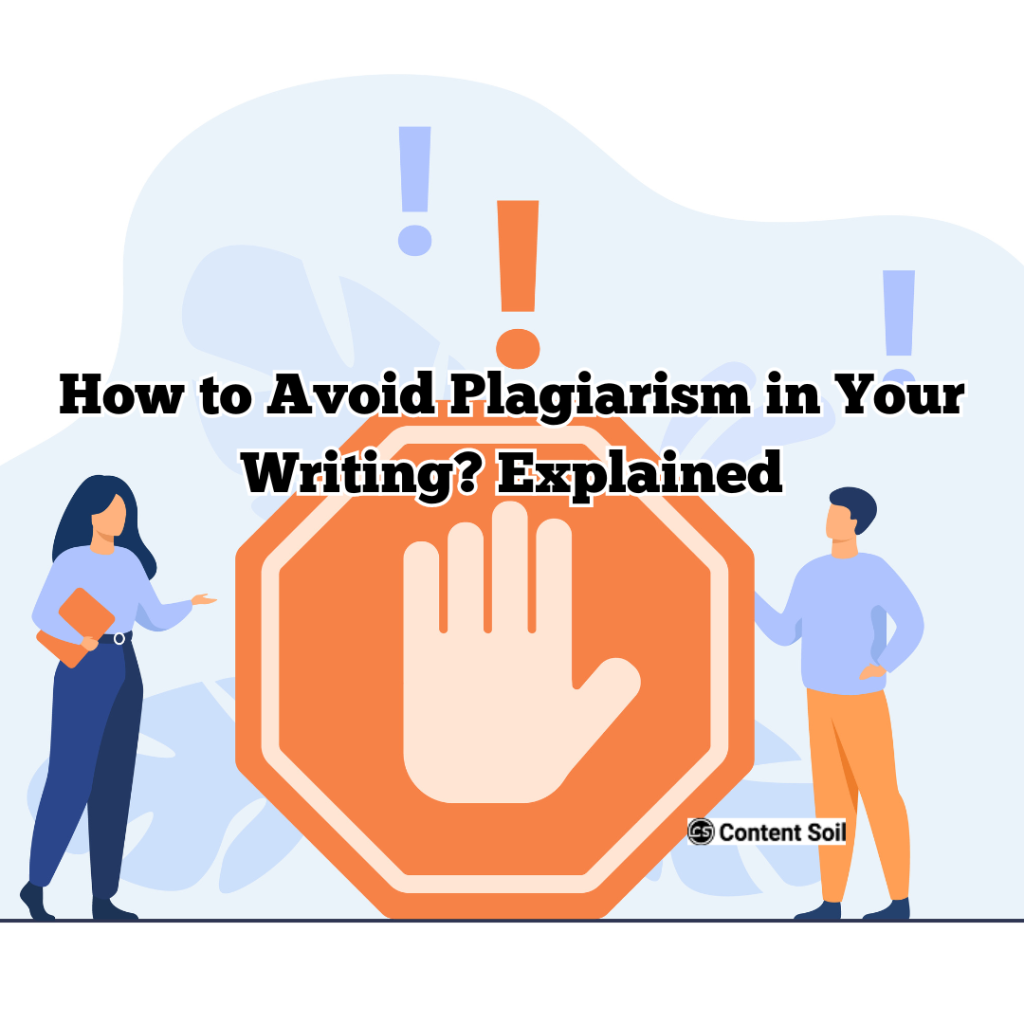How to Avoid Plagiarism in Your Writing?
Introduction:
Trying to think of everything you should say in your article is a daunting undertaking. That comes with a hefty dose of regulations, though. It’s not as straightforward as copying and pasting some text to use someone else’s research in your paper. If your paper is found to include plagiarised material, it will be immediately rejected. Having spent so much time and energy, nobody wants it to happen. It’s considered theft whether or not it was done on purpose.
Bad things will happen if you steal someone else’s ideas without giving them credit. A good article rewriter can be found online and will be of assistance, but other options are available. Once you realise why avoiding plagiarism is so important, you’ll be better prepared to take the necessary precautions. Some of the most effective strategies for avoiding plagiarism are outlined here.
How to Avoid Plagiarism in Your Writing?
Start Early:
If you give yourself enough time to write, you won’t have to worry about plagiarising. When you’re in a hurry, it’s easy to overlook details. If you give yourself enough time, you can learn a great deal about your topic and give careful consideration to the content you produce. We are more likely to make careless errors when we are stressed.
Cite correctly:
It’s one thing to mention your sources, but it won’t mean anything if you don’t do it well. You need to follow strict guidelines to get a good grade on your paper. It’s possible to make a mistake even while you’re trying to do the correct thing.
Proofread:
You must proofread your work, and doing so will help you avoid plagiarising. You can look for the top article rewriter, but nothing beats a good proofread. Verifying that you have properly cited all the sources you utilised in your paper is not time-consuming. This method is straightforward and effective.
Quote:
Quotations are another form of attribution that can be used when paraphrasing someone else’s words. It won’t take long at all, and once you put it down on paper, you’ll feel compelled to act on it right away. You can avoid accusations of plagiarism if you properly cite your sources.
Paraphrase:
Even if you find a method around giving proper credit, you should still do it. It has been successfully paraphrased when a sentence can be reworded without changing its meaning. You can’t merely switch out one term for another; the paper must be written in your own words.
Add Value:
Don’t force yourself to use everything you read. Make an effort to improve upon the discussion by adding your observations. You can expect higher grades with this approach. It’s evidence that you’re conversant in the subject at hand. The only method to achieve this is to conduct considerable research until you reach a point of epiphany.
Plagiarism Checker:
Many reliable plagiarism checkers can be found on the web. If I wanted to rewrite an article, I could find the greatest one in a heartbeat. In order to avoid plagiarism, the same logic applies. Running your work through a checker is a simple way to ensure accuracy.
Reference Page:
Another easy way to avoid plagiarism is to include a reference page at the end of your paper. Just add to this list as you do your research and know what you want to include. Do not try to do it when you are done with your paper because it is easy to miss something important.
Ask your Teacher:
Get in touch with your instructor and spend some time going over the paper requirements. It’s amazing how much time we can save by just asking. Inquire as to the necessity of a bibliography or in-text citation. Having done this, you’ll be ready to tackle the challenge.
Internet is a Source:
You still need to properly credit any information taken from the web, even if it wasn’t originally published in print. You should use extreme caution with this one because it is, after all, an original creation. When doing research, it’s important to properly credit the websites you visit. You shouldn’t assume that something you see on someone’s blog is fair game just because you found it there.
Conclusion:
An accused plagiarist may face disciplinary action up to and including expulsion. The ethics violation may appear on the student’s transcript, making it impossible for them to transfer from their high school to another institution. Plagiarism is taken very seriously in schools and universities.
In conclusion, avoiding plagiarism requires a commitment to ethical writing practices. By understanding what constitutes plagiarism, using proper citation and referencing, paraphrasing effectively, developing your own voice, utilizing plagiarism detection tools, planning and organizing your research, and seeking permission for reuse when necessary, you can maintain academic integrity and produce original, authentic work that respects the contributions of others.


